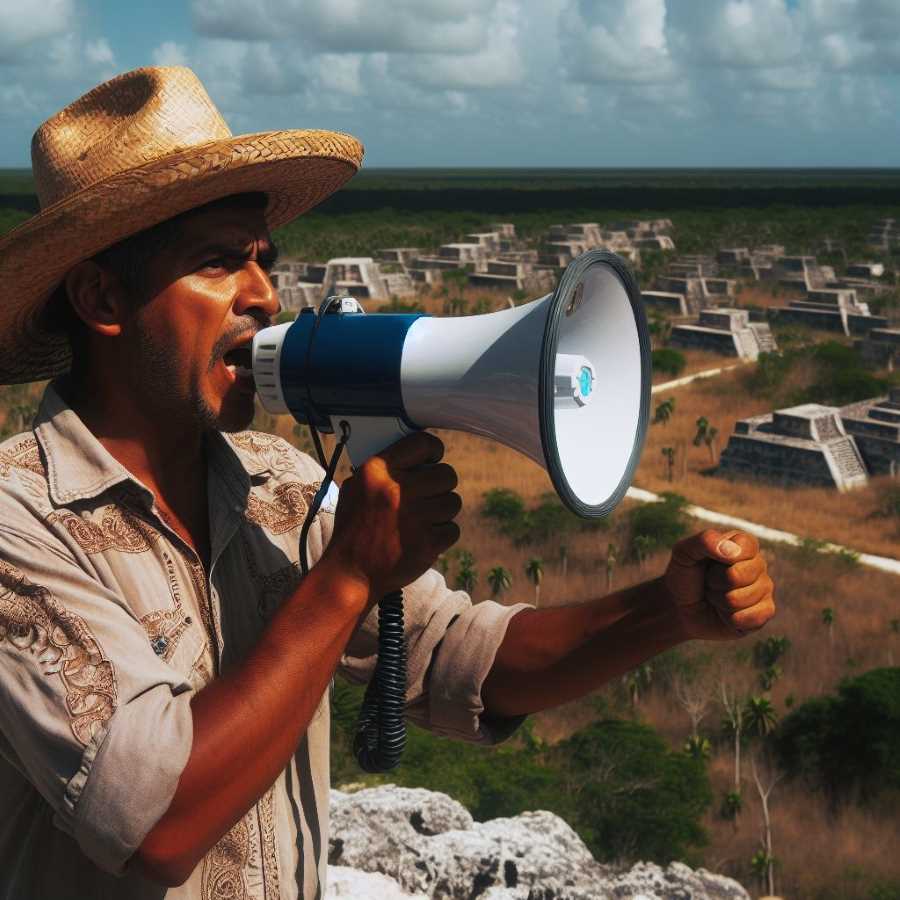Broken Promises Fuel Protests on the Path of the Mayan Train
In Quintana Roo, Mexico, over 500 landowners protest the Mayan Train project. They gave up land with promises of compensation and development which haven't materialized. Now facing further land grabs, they block a highway, demanding hospitals, schools, and the return of their land.

The hum of excavators cuts through the dense jungle of Quintana Roo. Mexico's grand infrastructure project, the Mayan Train, is taking shape, its iron tendrils winding through ancient landscapes. It's a vision of modernization – snaking through tourist hotspots like Tulum, promising economic prosperity and connectivity. But just outside the idyllic coastal town, a different story unfolds.
On March 18th, over 500 ejidatarios (communal landowners) from the Chunyaxché district barricaded the highway linking Tulum to Felipe Carrillo Puerto. Their hands clutch signs, their voices hoarse with frustration. At the heart of their protest echoes a broken promise.




